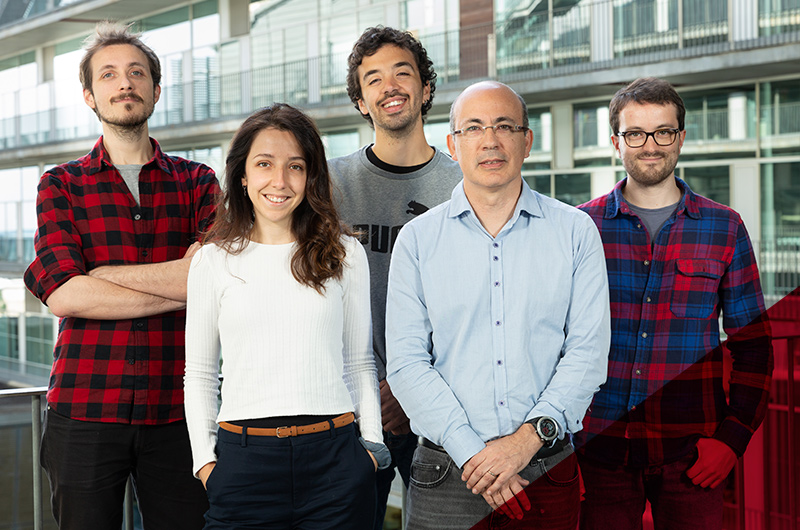Genomics of Individuality
Francesc Calafell

Group website
Research Outline
The general topics that interest us revolve around the genomics of individuality: what is there in our genomes that make us the way we are? What does it tell about our ancestry? How does it affect our susceptibility to diseases? How can this be applied in practical settings (i.e., in forensic genetics)? We have applied this frame to a wider scope that views the individual as part of a genealogy, sharing lineages with individuals that are related to them. We focus on the Y chromosome, which marks paternal lineages, and on the Western Mediterranean.
Research Lines
 Population genomics of the Western Mediterranean
Population genomics of the Western Mediterranean
We are using whole genomes to characterize the human populations in the Western Mediterranean, in order to disentangle their mutual relationships, as well as any external contributions. For the first time, we are exploring French regional diversity. We have also found that one of the most divergent populations in the area is Eivissa, due to its secular isolation rather than to its initial Phoenician settlement.
- Population genetics of the Roma (Gypsy) populations
The origin, dispersals, demography, relationships with the host groups and other aspects of the population history of the Roma can be analyzed with a number of different genomic tools, including Y chromosome sequences and copy number variants. For the latter, the reverse inferential path can also be traversed: one can learn about the genomic dynamics of copy number variation by taking advantage both of founder effect and subsequent gene flow into the Roma.
Team during 2017-18
- PhD students: Neus Solé, Simone Biagini, Carla García Fernández, Marco Antinucci.
Selected publications 2017-18
- Calafell F, Larmuseau M (2017) The Y chromosome as the most popular marker in genetic genealogy benefits interdisciplinary research. Human Genetics, 136(5):559-57.
- Casals F, Anglada R, Bonet N, Rasal R, van der Gaag KJ, Hoogenboom J, Solé-Morata N, Comas D, Calafell F. (2017) Length and repeat-sequence variation in 58 STRs and 94 SNPs in two Spanish populations. Forensic Science International Genetics 30:66-70.
- Solé-Morata N, García-Fernández C, Urasin V, Bekada A, Fadhlaoui-Zid K, Zalloua P, Comas D, Calafell F (2017) Whole Y-chromosome sequences reveal an extremely recent origin of the most common North African paternal lineage E-M183 (M81). Scientific Reports 7:15941.
- Solé-Morata N, Villaescusa P, García-Fernández C, Font-Porterias N, Illescas MJ, Valverde L, Tassi F, Ghirotto S, Férec C, Rouault K, Jiménez-Moreno S, Martínez-Jarreta B, Pinheiro MF, Zarrabeitia MT, Carracedo Á, de Pancorbo MM, Calafell F. (2017) Analysis of the R1b-DF27 haplogroup shows that a large fraction of Iberian Y-chromosome lineages originated recently in situ. Scientific Reports 7(1):7341.
- Larmuseau MHD, Calafell F, Princen SA, Decorte R, Soen V. (2018) The black legend on the Spanish presence in the low countries: Verifying shared beliefs on genetic ancestry. American Journal of Physical Anthropology. 166:219-227.
Other relevant information 2017-18
With Simone Biagini and Carla García-Fernández, organization of the symposium “Gene flow detection and dating methods” in the Society for Molecular Biology and Evolution meeting, Yokohama (Japan), 9/7/2018”.
